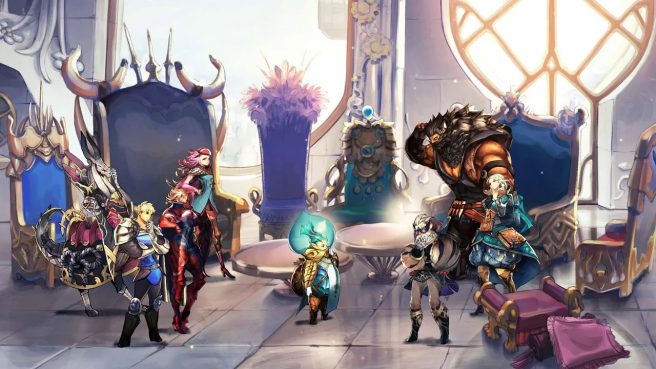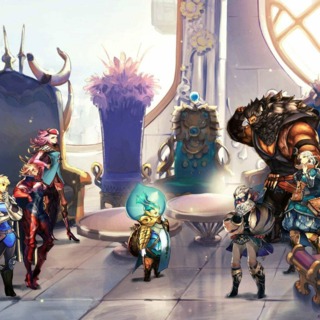

But I’ll be interested to see what reviewers think of the game in Japan or France, the homes of Nojima and Artisan Studios, respectively, in their native languages. It was a risk for Nojima to go with a smaller developer instead of relying on the vast resources of Square Enix. This game made me appreciate the art of localization more, as it’s something you often only notice when it has problems. But there’s little other writing or narration besides the dialogue, so that’s all you get for moving the story along. For some characters with personalities that are generally more serious (Dagmar, the beefy Arktan sorcerer) or glib (Kaydin, one of the harpy-like Awisis), the dialogue actually works alright. Sometimes in important moments, the writing rises to the level of the storytelling, but mostly, it weakens any drama or personality the story or characters might have had. The entire crew entering the story at once robs them of the opportunity to be established as individuals, and as a result, none of them ever stand out.Īwkward lines like these are the norm in Astria Ascending. After the briefest of introductions for the Demi-gods, the story then delves into the characters’ backstories, taking them to each’s homeland in an impromptu farewell tour. Reversing the typical narrative of traditional JRPGs, this game drops eight characters on you at the outset. If you’ve ever wondered why it is in JRPGs that you usually start with one hero or a few and pick up more along the way, Astria Ascending has your answer. There are many odd choices in Astria Ascending, the most immediate being the story structure. Because no good deed may go unpunished, the Demi-gods are “rewarded” with a three-year countdown to death or “ascension.” As this story begins, the heroes’ estimated time to departure is down to three months. On the continent of Orcanon, the Demi-gods are the heroes chosen to protect the central city of Harmonia and Goddess Yuno from the Noises threatening to drag the city down into chaos. Well, Astria Ascending has eight of them.

Nojima loves to write characters who are destined to sacrifice themselves for the sake of saving the world. But does their magic rub off on this new adventure? In Astria Ascending, two RPG legends have tried something a little different, working with a newer, smaller studio.

But the names Kazushige Nojima (writer of Final Fantasy VII, VIII, X, Kingdom Hearts) and Hitoshi Sakimoto (composer for FF Tactics, FFXII, Vagrant Story, everything Ivalice) should make any classic JRPG fan’s ears should perk up. Artisan Studios may not be the most recognizable name.


 0 kommentar(er)
0 kommentar(er)
